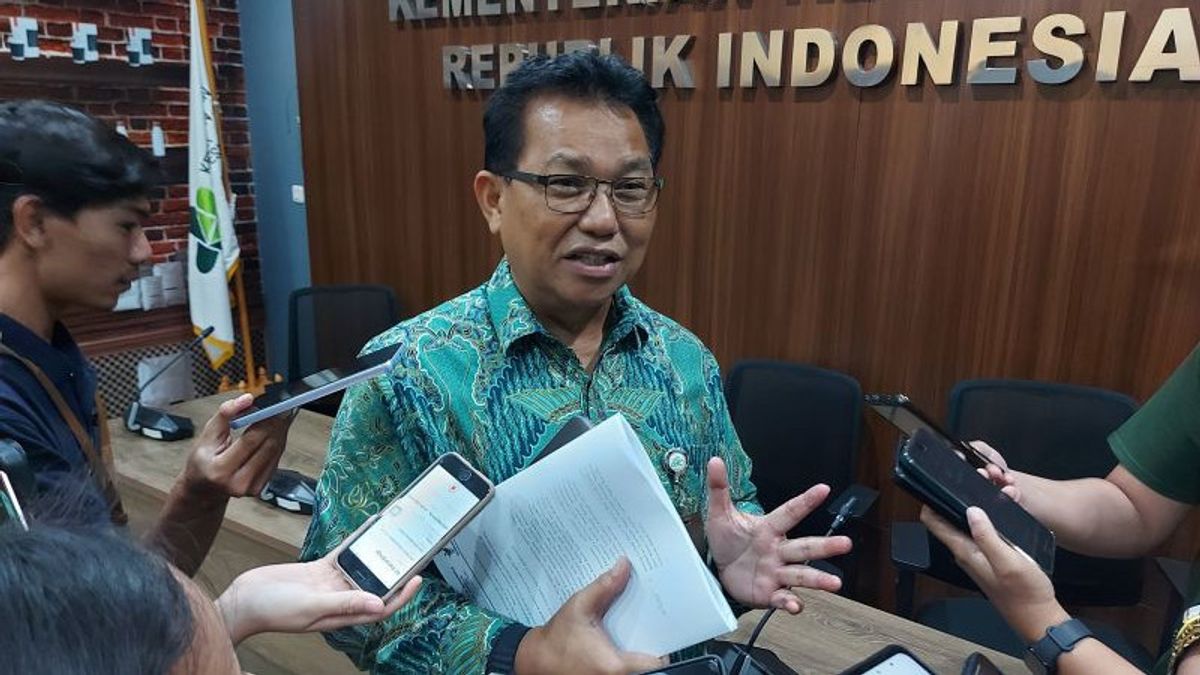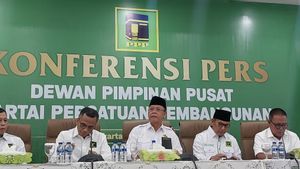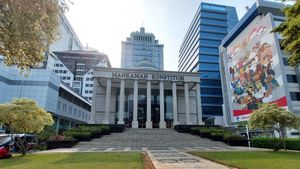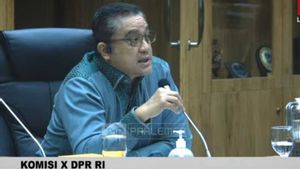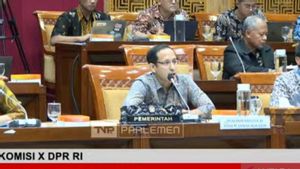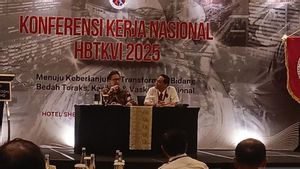JAKARTA - Spokesperson for the Ministry of Health Mohammad Syahril said that although the COVID-19 variants KP.1 and KP.2 had no evidence of causing serious illness, they still needed to implement health protocols for prevention.
"The Singapore government reports that the proportion of sublineage is dominated by sublinegaes KP.1 and KP.2. There are no indications, either globally or locally Singapore, that these two subvariants become more contagious or become more severe illness, compared to other variants," he said in a statement received in Jakarta, Antara, Wednesday, May 22.
Syahril said the Indonesian government was aware of the spread of COVID-19 variants KP.1 and KP.2. Official data from the Ministry of Health of Singapore shows an increase in COVID-19 cases from 13,700 cases during the period from April 28 to May 4 to 25,900 cases in the period 5-11 May 2024.
The average number of cases admitted to hospital in Singapore increased from 181 cases in the 18th week to 250 cases in the 19th week. However, the average number of cases included in the daily Intensive Care Unit (ICU) remained low, namely 3 cases (week-19) and 2 cases (week 18).
Globally, said Syahril, the JN.1 subvariant has dominated most countries, namely 54.3 percent. Locally, the combined proportions of KP.1 and KP.2 currently reach more than two-thirds of COVID-19 cases in Singapore.
As of May 3, 2024, he said, the World Health Organization (WHO) has classified KP.2 as a Variant Under Monitoring (VUM). However, there is no indication that the KP.1 and KP.2 variants are more easily transmitted or cause severity compared to other COVID-19 variants.
He said, based on data from the Global Initiative on Sharing All Influenza Data (GISAID) compiled by the ASEAN BioDiasspora Virtual Center as of May 19, 2024, the COVID-19 variant circulating in the ASEAN countries in 2023-2024 was dominated by JN.1.
The KP variants detected in ASEAN are not only circulating in Singapore, but also in Malaysia, Thailand and Cambodia. In Indonesia, the KP variant has not been found, he said.
"As of May 2024, the COVID-19 cases circulating in Indonesia are dominated by the Omicron JN.1.1, JN.1, and JN.1.39 subvariants. KP, have not been found yet,” he said.
Looking at the cases of the KP.1 and KP.2 variants in Singapore, Mohammad Syahril emphasized that there is no urgency of travel restrictions. This is according to a report published by the Singapore Ministry of Health.
"According to information published by the Singapore Ministry of Health, based on the current risk assessment, there is no urgency to impose travel restrictions from or to Singapore," he said.
However, he still reminded that the status of endemic does not mean that COVID-19 has disappeared, but is in a controlled situation. This means that there is still the possibility of new variants or subvariants potentially causing an increase in cases or deaths.
The public is advised to continue to apply health protocols (prokes) such as washing hands, wearing masks when sick, including in crowds/transport equipment. In addition, the public is asked to immediately complete the COVID-19 vaccination, especially in risky groups.
People who want to travel outside the region or abroad are advised to follow the health protocols applied in the intended area.
SEE ALSO:
The English, Chinese, Japanese, Arabic, and French versions are automatically generated by the AI. So there may still be inaccuracies in translating, please always see Indonesian as our main language. (system supported by DigitalSiber.id)
Most Popular Tags
#Prabowo Subianto #NCP #Palestine #tangerang sea fence #budget efficiency #iims 2025Popular
16 Februari 2025, 06:03
16 Februari 2025, 08:30
16 Februari 2025, 12:15
